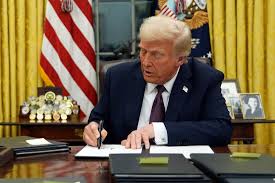environmental politics
In the Cross Hairs
The Right has taken umbrage at some of the important work of environmental law professors and centers.
The fossil fuel industry and its conservative allies seem to have taken notice of the important work done by environmental law centers. Their response is to try to repress this valuable work. This is a backhanded acknowledgement that law schools are making a difference.This campaign has targeted some of the law schools with the most prominent environmental law programs. Climate scientists have long been the target of harassment and public attack. It appears that people who work on climate policy are now also in the crosshairs. What we’re seeing lacks the drama of other attacks on free speech and academic freedom. But it is capable of being no less harmful. McCarthyism writ small is still McCarthyism.
CONTINUE READINGThe Top Ten Things to be Thankful for this Year
It’s been a horrible year for federal environmental law, but there are hopeful developments elsewhere.
This is, if not the winter of our discontent, at least the late autumn. In terms of federal environmental policy, 2025 has been a disaster. Trump’s previous term in office pales by comparison. But all is not gloomy. Outside of D.C., there have been encouraging developments within the U.S. and globally.
Here are ten of those positive developments.
The 2026 Election: Through a Glass, Darkly
Here’s what things look like now, but a lot could change.
We’re now one year from Election Day. Because of polarization, environmental policy is closely tied to political party. With that in mind, I’ve been providing election information for about the past ten years. I don’t claim any expertise. My predictions are based on two well-established political websites, Cook and Sabato. Given all that’s happening, the situation will surely shift in the next year, but here’s what things look like right now. Obviously, it’s early days. The Democrats will need to get some luster back on their brand and see some tarnishing of Trump’s if they’re to prevail.
CONTINUE READINGThe Failed Effort to Protect Workers from Toxics: A Labor Day Reflection
The OSHA law called for rigorous regulation. It never happened.
To put it in a nutshell, the political base for workplace toxic regulation eroded along with America’s industrial unions. That deprived OSHA of the congressional support it needed to thrive. In the absence of a union revival, the right of workers to be free from toxic hazards is likely to remain an unfulfilled dream.
CONTINUE READINGThe Environment and the Rule of Law
Without the rule of law, environmental protection has no chance of succeeding.
It’s no coincidence that the environment and the rule of law are both targets, because environmental protection is particularly dependent on the legal system for support. There is a lot of wisdom to the slogan, “The Earth needs a good lawyer.”
CONTINUE READINGTalking to Skeptics About Clean Energy
Some people will stop listening if you talk about climate change. But there are other arguments.
The dangers of climate change provide excellent reasons to support clean energy. But that argument can be futile — or worse, counterproductive — when listeners don’t take climate change seriously or reject the idea altogether. Fortunately, there are other arguments that may better appeal to them.
CONTINUE READINGHow to Lie with Percentages
It’s easy to make something seem big or small, depending on how you present the numbers.
We’re told that a given policy will only reduce U.S. emissions by something like 1%, which sounds trivial. But total U.S. carbon emissions are 4.8 billion tons. One percent of that is 48 million tons, which is a lot of carbon. At the current estimate of the social cost of carbon, reducing U.S. emissions by 1% would prevent $9 billion of harm.
CONTINUE READINGWhy I Still ♥ IRA
Biden’s climate law has already had a dramatic impact.
With over a half-trillion dollars in clean tech investment to date, the Inflation Reduction Act has left an indelible mark on U.S. climate policy. It’s unlikely that Congress will vote to repeal the whole law, given massive investments in GOP congressional districts. But even if they did, there’s no undoing the investments already made.
CONTINUE READINGA Trumped-Up Energy Emergency
We have weathered past threats to energy security through democratic processes, not by executive fiat.
The Executive Order has fabricated an energy emergency and is doubly wrongheaded. First, as the statistics bear out, there is neither a domestic energy emergency nor an energy crisis. The U.S. has effectively secured energy independence. More significantly, Trump’s politically driven, fossil fuel-dependent energy portfolio is neither diversified nor economically sound.
CONTINUE READINGEven in Dark Times, There are Still Reasons to be Thankful
The election was largely a disaster. But we’ve also seen some positive developments.
Trump’s triumphant return to power promises to be a disaster for environmental protection, casting a pall over all else. Even so, if you’re someone who cares about energy and environment, there are some things to be thankful for ithis year Here are a few.
CONTINUE READING











